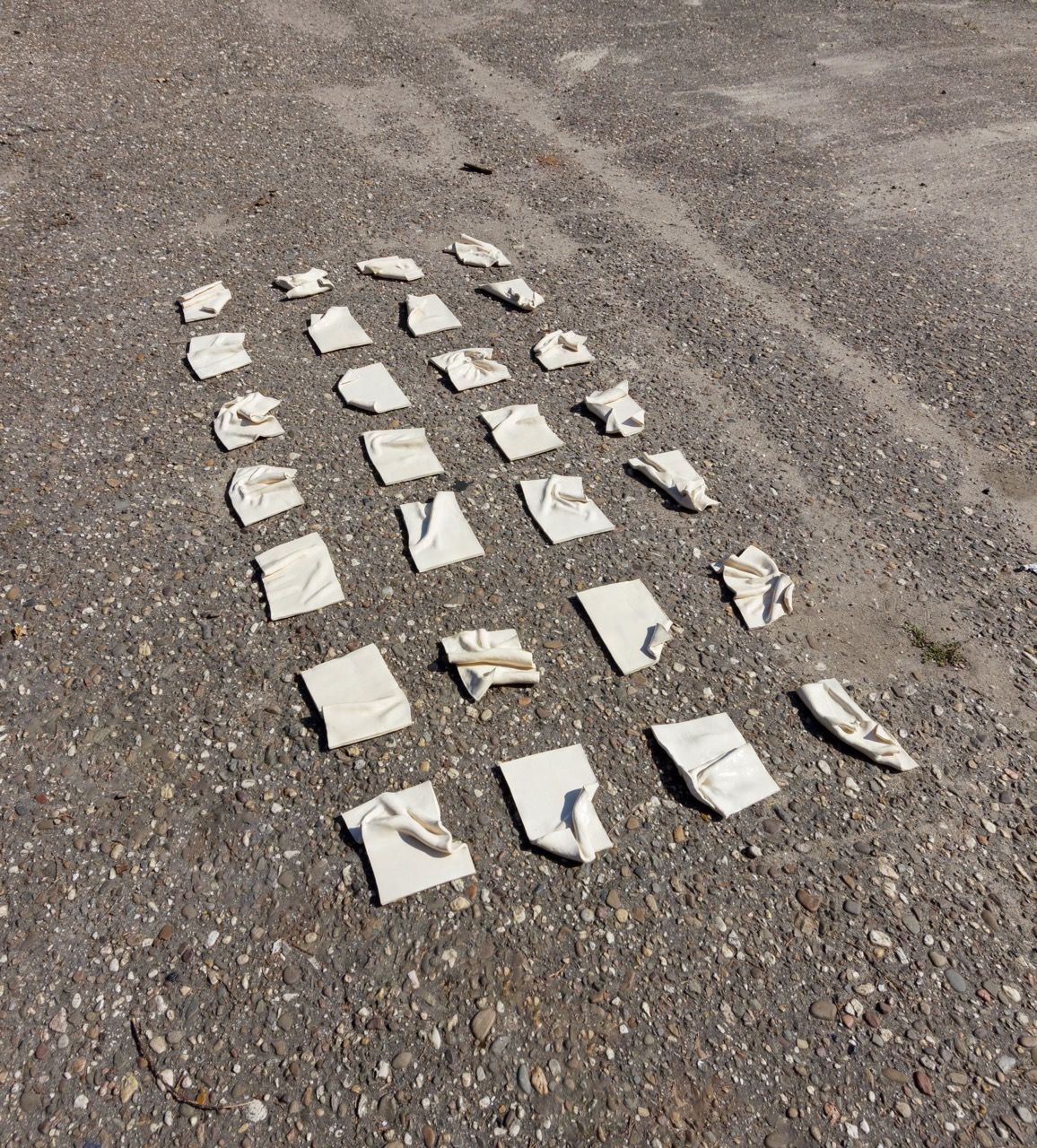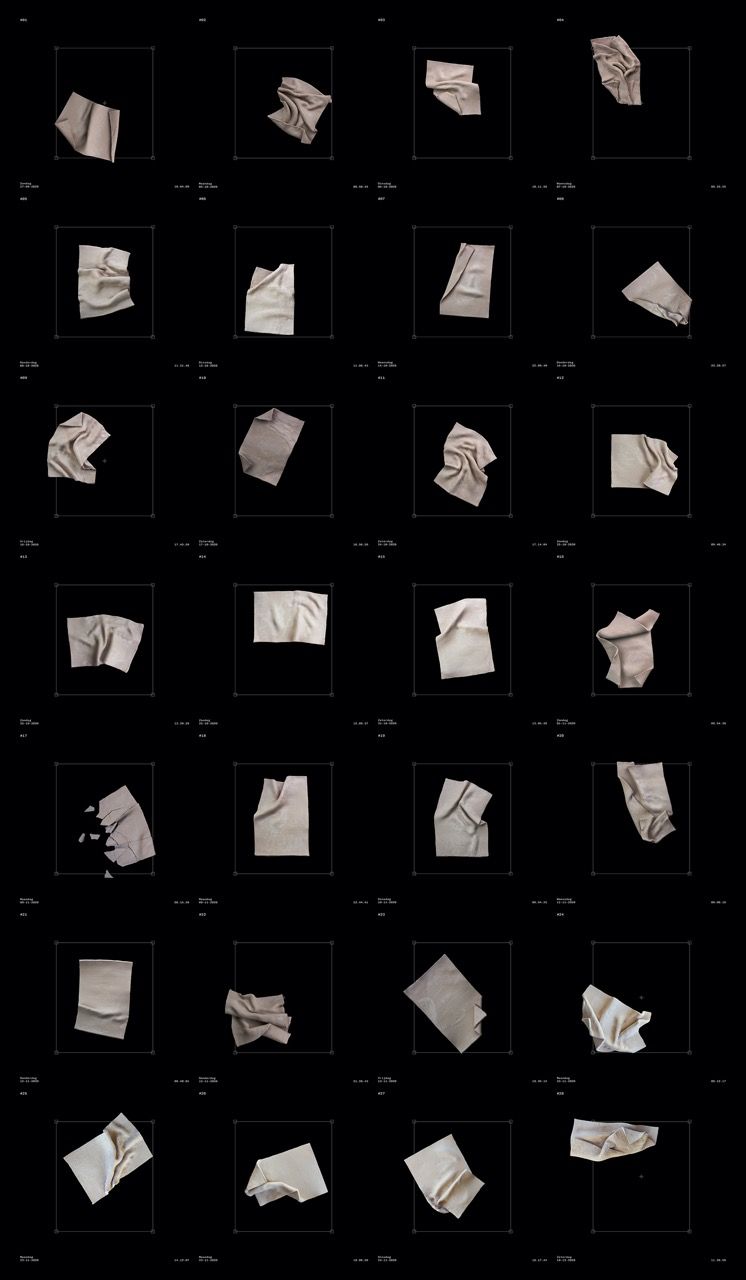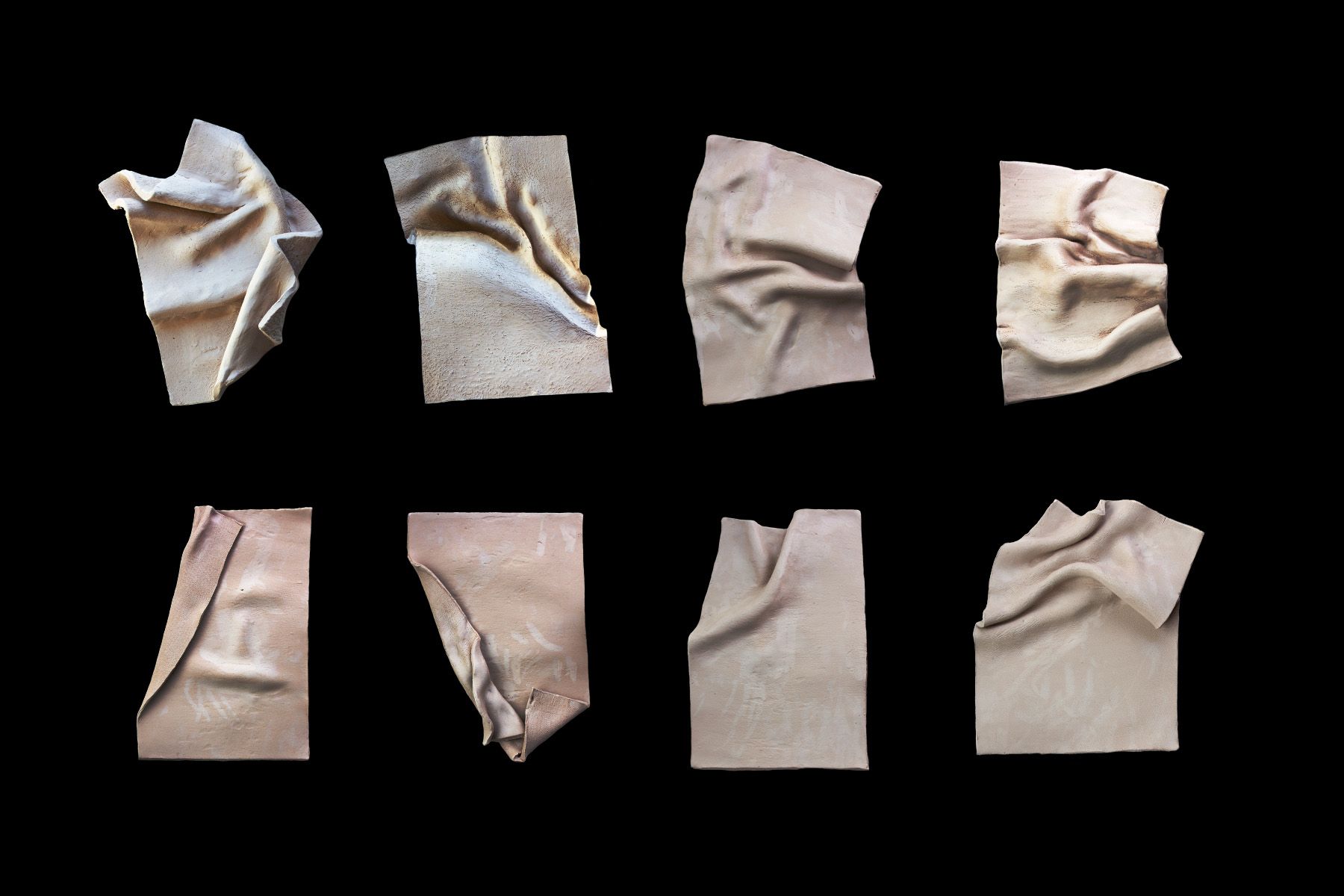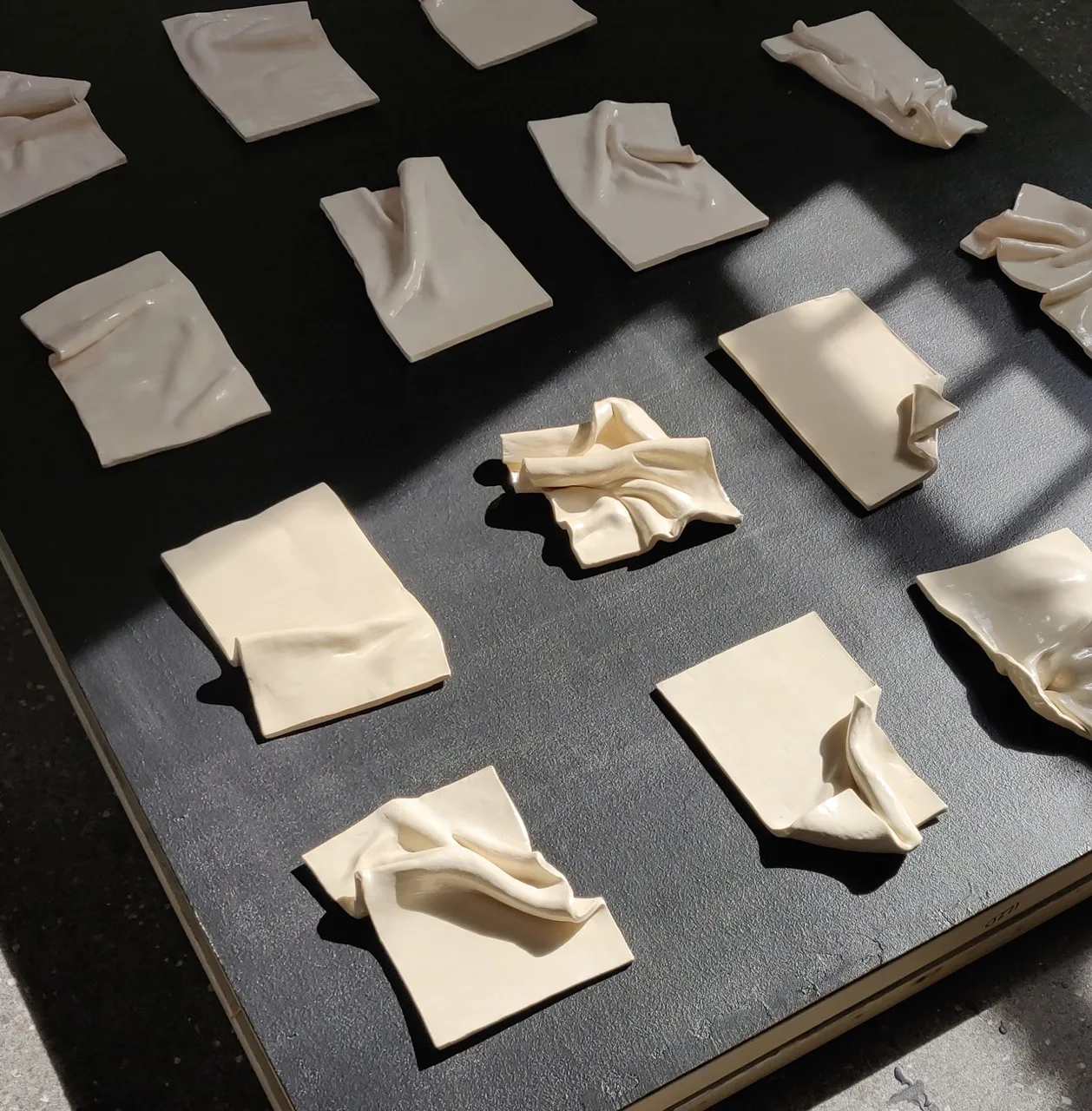This story is part of Next Generation, a series in which we give young makers a platform to showcase their work. Your work here? Get in touch and plot your coordinates as we navigate our future together.
Lindsey Bundel is a multidisciplinary artist who does not work towards a specific end product, but allows the alienation and chaos of the research phase to take a prominent role. With themes such as technology, nature, object and trauma, Lindsey playfully and philosophically investigates the disturbed relationship between themselves and the things around them. They were selected to be part of ‘Kickstart Lab’, a talent development program in Utrecht, and their graduation work, Mutual Darkness of Objects, was exhibited at the Dutch Design Week in 2021.
Mutual Darkness of Objects
Over a 11 week period, I documented the position and shape of the bath mat in my shared household when it frustrated me. The 28 mat versions that resulted from this were then meticulously recreated to scale and preserved in ceramics. These objects contain the unwittingly youthful and vital movements of my roommate, an energy which I wish to preserve since it is in heavy contrast with that of mine.

‘Mutual Darkness of Objects’ is a research documentation, inspired by Object-Oriented Ontology, about discovering and developing a narrative from a non-human starting point. Within this research the (non-human) object is used as a ‘tracer’ to trace the worlds it passes through. By observing and analyzing the object in the different networks of actions in which it is engaged, I’m hoping to extract a communicative value out of the various gestures of the object. This hopefully leads to an exploratory dialog between me, the other and the things around me.
Object-Oriented Ontology argues that all objects deserve equal attention; whether they are human, non-human, natural, cultural, real or fictional.
Object-Oriented Ontology is a philosophical movement that claims that objects exist independently of human perception and questions the central role of the human perspective within traditional philosophy. This philosophical viewpoint is diametrically opposed to the dominant movement within modern philosophy and contemporary metaphysics, which holds that humans have a central position and everything that exists is only there because we can perceive it; the anthropocentrism. Object-Oriented Ontology argues that all objects deserve equal attention; whether they are human, non-human, natural, cultural, real or fictional.

Tissuebox
My initial motivation for this research can be traced back to my unprecedented hatred of the tissue box (in a specific context) in the spring of 2019. The context in question was my psychologist's small office; a young woman whom I was privileged to bore, with my general disgust at existence for about 12 sessions. Each appointment I observed the potential changes in the tissue box. Was it emptier or fuller? More twisted than usual? Somewhat dented? What did the tissue look like? I was actually looking for traces of use, and I especially hoped not to find them.
A communicative value can be extracted from the traces left behind in the object and how with this my (unconscious) often disturbed relationship with the things around me can be examined.

This experience made me realize how a communicative value can be extracted from the traces left behind in the object and how with this my (unconscious) often disturbed relationship with the things around me can be examined. From this realization, my research Mutual Darkness of Objects was born; a research documentation, inspired by Object-Oriented Ontology, about discovering a narrative from a non-human starting point. The title refers to the idea that objects never make direct contact with each other, any more than with the human mind, but need a mediator for such contact to occur. This "mutual darkness" or "mutual withdrawal" of things, a term used by Heidegger, makes reality only accessible with indirect language, such as metaphors in aesthetics and poetry.


Comments (0)
Share your thoughts and join the technology debate!
No comments yet
Be the first to share your thoughts!